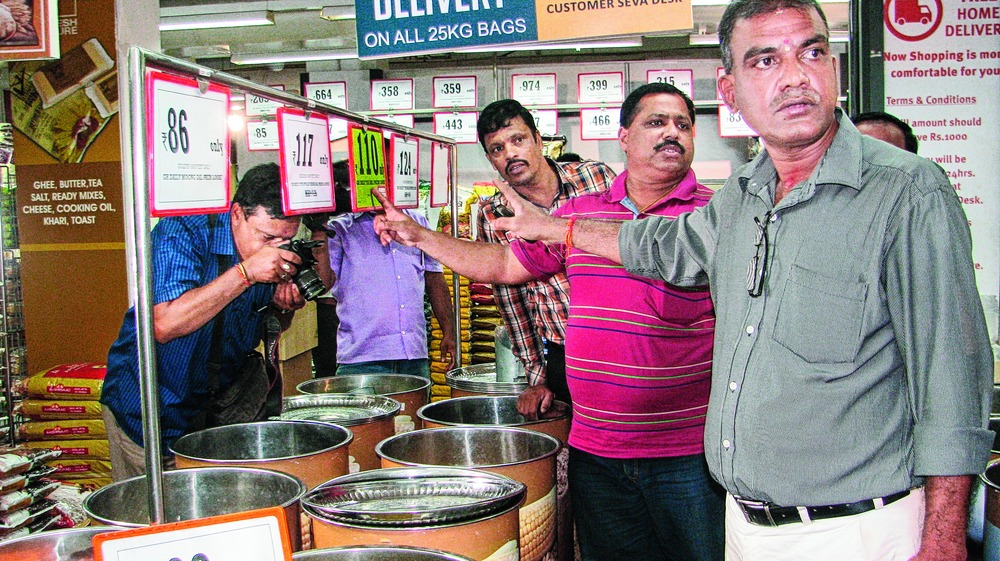
on Wednesday. Picture by Badrika Nath Das
Cuttack, Sept. 14: A seven-member squad of the civil supplies department today conducted raids on Big Bazaar, Reliance stores and other shopping malls to put a check on the rising prices of pulses.
The raid was conducted following complaints that several such malls had been selling different varieties of dal at exorbitant rates.
Civil supplies officer Ashok Mohapatra told The Telegraph that it was found that the pulse rates were higher at the malls than in the retail market.
Official sources said arhar dal was being sold at a price ranging from Rs 110 to Rs 114 a kg at Big Bazaar while moong dal was being sold for Rs 100 to Rs 105 at the shopping malls.
"There was difference of Rs 4 to Rs 5 of pulses per kg being sold at malls due to the cost of packaging and other charges. We have asked the authorities to ensure that there is no higher variation in the prices as compared to the retail market," said Mohapatra.
Mohapatra added no violation was detected in the physical maintenance of stocks because the malls are allowed to keep a stock of 2,000 quintals as they come under the wholesale category.
A retailer, on the other hand, is only allowed to stock 50 quintal of pulses at his shop or godown, he said.
A district administration official said a close watch was also being kept on the retail markets. The stocks at Malgodown, the largest wholesale market, would shortly be verified to ensure that there was no hoarding of the pulses.
Sources said there had been a hike in the prices of pulses, especially arhar dal, by at least Rs 10 to Rs 15 in the wholesale price per kg compared to the price last week.
Cuttack Chamber of Commerce joint secretary Prafulla Chatoi also admitted the prices of the pulses had come down in the last month, while the markets were now witnessing a reverse trend. "The wholesale price of arhar was earlier between Rs 9,000 and Rs 9,200 per quintal, which has again gone up to Rs 100 to Rs 102 per kg," said Chatoi.
Chatoi said the Malgodown traders were now procuring less quantity of pulses due to severe fluctuations in the prices as they had earlier suffered losses.











